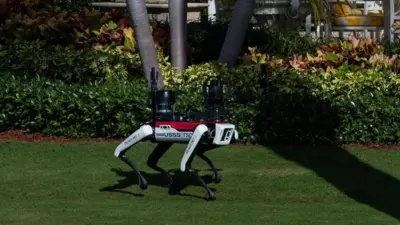We've updated our Privacy and Cookies Policy
We've made some important changes to our Privacy and Cookies Policy and we want you to know what this means for you and your data.
Southern rail: Train drivers stage further walkout
Image source, PA
Southern rail train drivers are staging a third strike day this week, bringing severe disruption to the network.
The Aslef union is in dispute with Southern's parent firm Govia Thameslink (GTR) over guards' roles on trains.
Drivers walked out for 48 hours on Tuesday and Wednesday and more strike days are planned later this month.
Southern has accused the union of abusing its power but Aslef general secretary Mick Whelan said the company had tried to force through change.
The operator has laid on 200 buses and coaches to take passengers to railway stations served by other operators, but has advised people not to travel unless absolutely necessary.
Southern said there would be a limited peak-time service between Caterham in Surrey and London Victoria and no services would operate on any other route.
On those that are running, information for passengers said: "These services are expected to be very busy and you should only travel if your journey is essential."
Image source, Getty Images
Aslef's next strike action is planned for 24, 25 and 27 January.
Members are also operating an overtime ban.
The Rail Maritime and Transport Workers union (RMT) has been involved in industrial action since last April and has announced a 24-hour strike for 23 January.
Its members are mostly conductors, but the RMT also represents 12 drivers who are participating in the Aslef strike.
GTR has said it will take Aslef to the Supreme Court over the industrial action.
The bitter dispute centres on Southern's desire to turn guards into supervisors. As such, they would no longer be responsible for opening and closing carriage doors - that role would then fall to the drivers.
Image source, EPA
Friday's strike follows continued disruption on Thursday, when drivers were back at work for one day.
Commuters have said non-strike days are worse than strike days because disruption is harder to predict.
In a , advertising executive Kimberley Butler, who commutes from Brighton to London, said the "real stress" came on non-strike days.
Commuter Lucy Luscombe, a management consultant, said it was "daily chaos" because she never knew when her trains from London Bridge were being cancelled, dropped at short notice or run as shorter services - making them too busy to board.
Top Stories
More to explore
Most read
Content is not available








